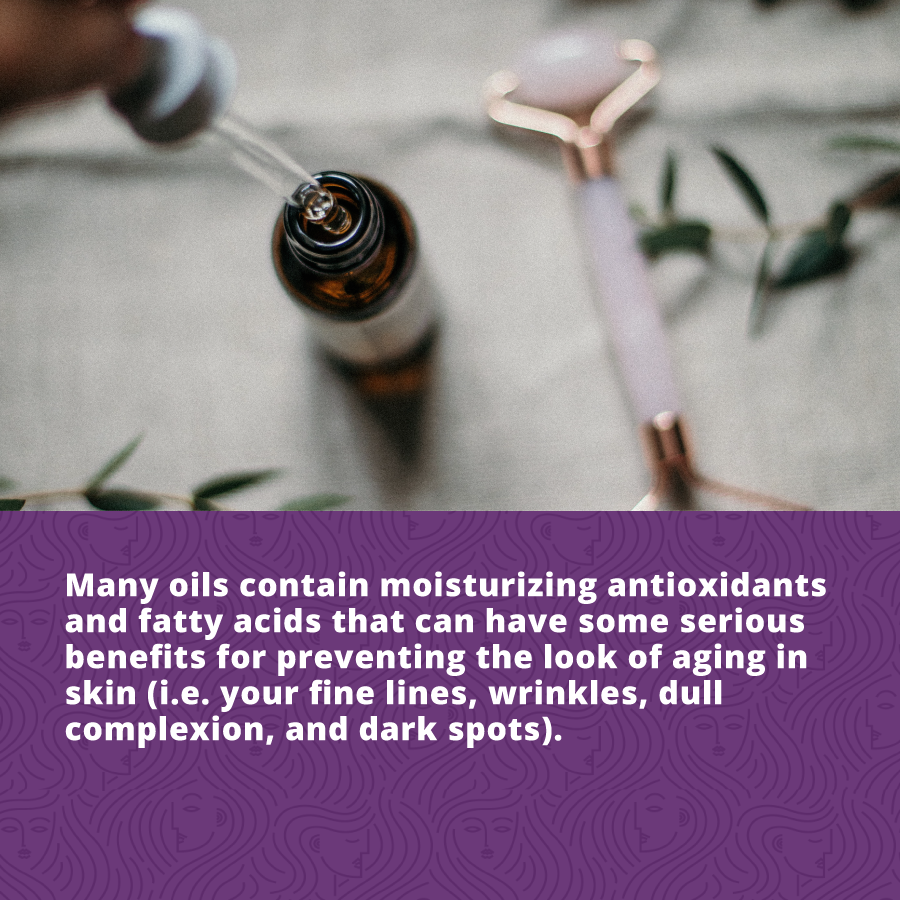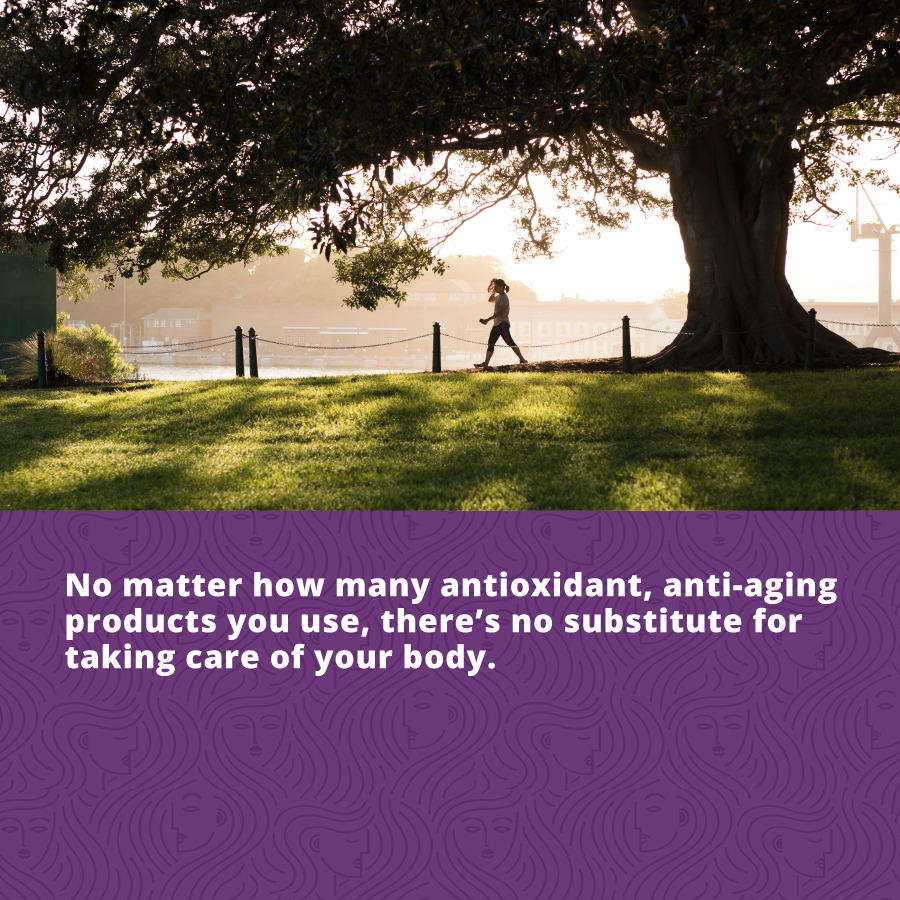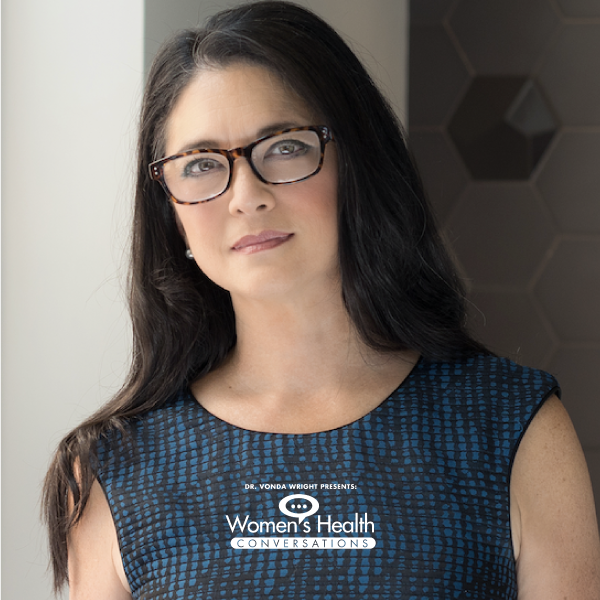Dr. Vonda Wright’s Healthy Lifestyle Tips on How To Slow Aging
Everyone wants to learn how to slow aging because they think it won’t be a graceful process. Personally, I have never been anti-aging. In fact, I believe that aging is the most natural thing we do in our entire lifetimes, and fighting it is futile. From the minute we are conceived to the minute of our death, there is nothing more natural and designed than aging.
What I am about is harnessing the power we have to determine our level of health and live more fully every second of our lives through the choices we make. It matters what we eat. It matters how much we sleep. It matters how much mobility we have in our lives. And it matters who we surround ourselves with and the relationships we keep.
I’ve written four books on the subject, and if you want to know what I really believe or my anti-aging secrets, it’s all there.
The secret is that… there is no anti-aging secret or trick that will teach you how to slow the aging process. However, there are plenty of fantastic, positive decisions to be made to increase your mobility, vitality, and satisfaction every minute of your life.
Here are some of my healthy lifestyle tips that can increase the quality of your life:
Get Your Omega 3 Fatty Acids
Omega 3 fatty acids, like those found in seafood and some nuts, have a host of anti-aging benefits. A study in JAMA Ophthalmology examined the effects of this fatty acid on age-related macular degeneration and found that upping your intake of fish reduced the risk of macular degeneration, especially for those eating two or more servings a week. Increased dietary omega-3 fatty acid intake was associated with decreased age-related macular degeneration. This same study also found that cigarette smoking increases your risk.
Omega 3s also have an impact on mental health. Three separate studies, collected into a review published by the Agency for Healthcare Research Quality, looked at the impact of omega 3 fatty acids on dementia. One study found that fish consumption was associated with a significant reduction in the instance of non-Alzheimer’s dementia. All three studies linked it to a reduced risk for Alzheimer’s, with one study showing a significant impact.
The review also found one study that linked increased omega 3 consumption with a reduced risk of giving birth to a child with cerebral palsy. Another study showed a significant reduction in the debilitating symptoms of multiple sclerosis.
The best part of omega 3 fatty acids, though, is their delicious sources. You can get a healthy dose of this age-fighting nutrient from salmon, walnuts, oysters, roasted soybeans, and spinach! Heard of the Mediterranean diet? It’s not the restrictive diet you might be imagining. Rather, it’s a delicious clean diet filled with healthy fats, vegetables, and the most delicious fish! It’s worth giving a try.

Cleanse Your Skin With Oil
Another healthy lifestyle tip is to cleanse your skin with oil. Oil cleansing has been a definite trend in skincare over the past few years, and for good reason. Many oils contain moisturizing antioxidants and fatty acids that can have some serious benefits for preventing the look of aging in the skin (i.e. your fine lines, wrinkles, dull complexion, and dark spots). Facial oils are nurturing, emollient, and prevent trans-epidermal water loss, which can reduce skin wrinkles. Emollients in oils smooth those wrinkles out and fill them in. They may even help hold water in the skin’s outermost layer.
For most of our lives, we’re told to avoid oils on the skin because it can cause acne. Actually, oil nourishes the skin and tells it “you can relax now, you don’t need to produce more oil” so that the pores don’t get clogged with sebum and dirt.
One of my favorite oil cleansers, Tatcha’s One Step Camellia Cleansing Oil, also contains rice bran oil, which has strong antioxidant properties. Antioxidants can limit the production and activity of pesky free radicals that damage skin and cause visible signs of aging. It also contains camellia oil, which boosts collagen production and reduces transepidermal water loss, making it an awesome wrinkle fighter. You can also boost your collagen levels by eating a wholesome diet and taking a clean collagen supplement!
Load Up On Vitamin C
Vitamin C is another skin savior when it comes to fighting the look of aging. It fights free radicals, suppresses skin pigmentation, breaks down melanin, boosts skin firmness by triggering collagen production, and can even make your sunscreen work better (just make sure you find a sunscreen that’s free of toxins that can harm your body and the environment). Topical application of vitamin C protected the skin of pigs from UVB damage and UVA-mediated phototoxic reactions that can cause long-term damage to the skin.
I get a burst of topical vitamin C when I use the Philosophy Microdelivery Resurfacing Peel. The two-part treatment exfoliates dead skin cells and delivers a healthy dose of vitamin C to minimize the appearance of lines, wrinkles, spots, and sagging.

Exercise, Exercise, Exercise
If you want to learn how to slow aging, it can’t come from the outside in. No matter how many antioxidant, anti-aging products you use, there’s no substitute for taking care of your body. We often think of reactive oxygen species (ROS) as unhealthful, inspiring us to consume more antioxidants to neutralize them. However, a study in Biogerontology suggests that when exercise produces reactive oxygen species, they play a role in the natural induction of antioxidants, DNA repair, and protein degrading enzymes which are healthful. Overall, this exercise-induced stress is good stress. It decreases the incidence of oxidative stress-related diseases, such as cancer, diabetes, and cardiovascular disease. And consequently, exercise retards the aging process.
As we get older, we tend to exercise less, according to The Biology of Aging. The reasons for that may be both cultural and biological. The author proposes that culturally, we’re expected to slow down and “act our age” when we hit a certain number of years or even “enjoy a well-earned rest.” Yet, there are very good reasons to stay physically active. Active aging is a powerful thing – you don’t have to take the back seat and ride through the ups and downs of aging. Women are resilient at any age! Exercise, eat well, reduce stress, care for yourself and you’ll be surprised at how good you look and feel at every age. The secret isn’t in learning how to slow aging, it’s learning how to manage and control it. You got this!

